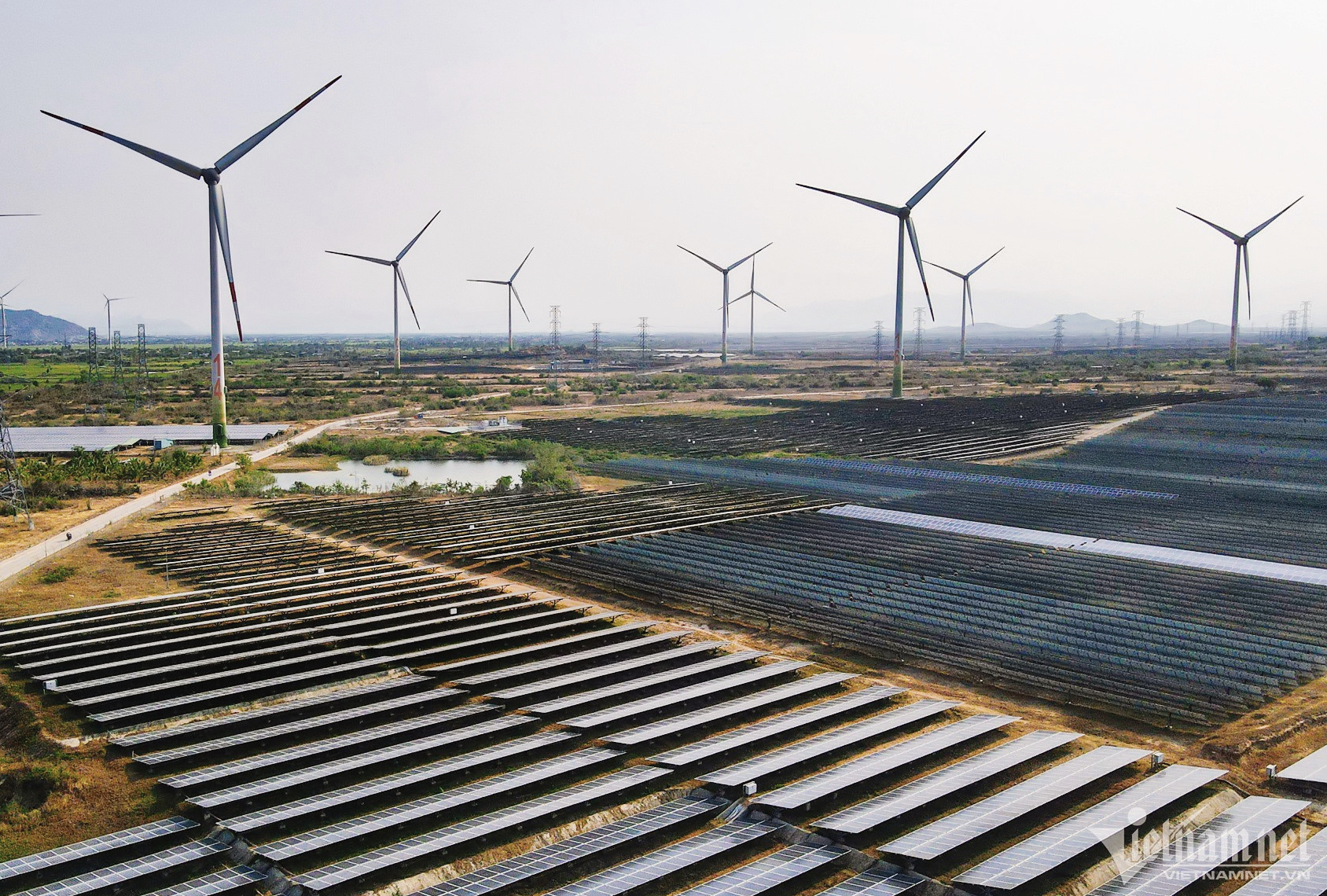
In a recent report to the Prime Minister, the ministry addressed issues related to the application of the Feed-in Tariff (FIT) pricing mechanism for renewable energy projects under Resolution 233, dated December 10, 2024, which aims to ease difficulties for these energy ventures.
EVN holds both authority and responsibility
Regarding authority over FIT pricing disputes, the ministry emphasized that, under current electricity regulations, negotiating and signing power purchase agreements (PPAs), as well as recognizing the commercial operation date (COD) of solar and wind power projects, falls under the jurisdiction of EVN.
According to Conclusion 1027 from the Government Inspectorate, responsibility for shortcomings and violations related to COD recognition and the application of fixed electricity prices lies with project investors, the power trading company, and EVN.
Thus, EVN is the body with both the authority and obligation to resolve COD-related disputes and determine FIT eligibility. It is also responsible for working with investors to finalize solutions and reach consensus on FIT entitlements for renewable projects, according to the ministry.
Unresolved issues continue over FIT pricing for renewable energy projects
In terms of addressing the obstacles, the ministry has submitted a plan to Deputy Prime Minister Nguyen Hoa Binh, which has received approval for implementing Resolution 233.
Accordingly, EVN must determine the eligibility conditions for FIT pricing and act as the primary decision-making body.
For the resolution process, EVN will coordinate with project investors to assess FIT eligibility. For those not qualifying for FIT, EVN will report to the relevant authorities to issue new pricing regulations that can serve as a basis for settling power purchase payments.
The Ministry of Industry and Trade has repeatedly sent documents urging EVN to act, while EVN has also released multiple reports and statements regarding FIT-related challenges faced by wind and solar projects.
However, the ministry asserted that EVN’s reports have not complied with the implementation guidelines under Resolution 233, and it has formally issued multiple written reminders.
In its latest report to the ministry, EVN stated: “EVN lacks sufficient information to assess the overall socioeconomic impact and investment climate risks, both domestic and international. This requires input from higher-level government agencies. Investor feedback cited concerns over investment environments, financial viability, potential bankruptcies, and operational halts…”
Meeting minutes and official correspondence also show that investors have consistently reserved the right to file complaints or lawsuits in cases where EVN proceeds with provisional payments. EVN has warned of large-scale legal risks, including possible international arbitration.
Nevertheless, the Ministry of Industry and Trade argued that EVN's reports are inadequate and non-compliant with Resolution 233. The reports mostly compile investor feedback without clearly showing EVN’s role and responsibility in resolving the core issues.
The ministry reiterated that FIT eligibility, COD certification, and the execution of signed PPAs are primarily the responsibility of the relevant enterprises - namely the project developers and EVN. State regulatory agencies can only provide legal guidance and encourage cooperation among involved parties to find a solution.
Investors oppose EVN’s approach
According to the Ministry of Industry and Trade, a recent meeting in late May, chaired by the Electricity Regulatory Authority, brought together more than 36 representatives from companies and associations to discuss EVN’s handling of ongoing challenges.
At the meeting, investors unanimously opposed EVN’s proposed solution of making provisional payments and applying temporary pricing schemes for renewable projects.
Given the circumstances, the ministry urged the Prime Minister to instruct EVN to swiftly resolve the outstanding issues, including COD certification and FIT pricing agreements, and to report back to the ministry before June 5.
EVN will be held accountable before the Prime Minister for any delays in resolution.
Regarding EVN’s concerns about potential large-scale legal disputes, including possible claims from Super Energy Corporation, the ministry has recommended assigning the Ministry of Justice to lead a coordinated evaluation with EVN and other relevant agencies and report findings to the Prime Minister promptly.
At present, investors representing more than 100 wind and solar projects have filed petitions to the authorities expressing concern over retroactive electricity pricing, which could impact a combined investment of more than USD 13 billion.
A retrospective pricing policy could strip these renewable energy plants of their entitlement to favorable FIT rates of 9.35 cents per kWh under FIT1 and 7.09 cents under FIT2. Prices might drop significantly, potentially not exceeding the cap of VND 1,184.9 (approximately USD 0.046) per kWh for transitional projects.
Investors argue that EVN’s proposal to apply retroactive or temporary prices is inappropriate. They have suggested that if EVN enforces such pricing and later changes are made by state agencies, EVN must be held liable for compensating damages. This may include penalty interest under credit contracts, losses from stock devaluations in listed projects, and other incurred expenses.
Tam An